Day One Biopharmaceuticals co-founders: Samuel Blackman, chief medical officer, and Julie Grant, acting CEO. (Day One Biopharmaceuticals)
From checkpoint inhibitors to CAR-T therapies, cancer treatment has transformed over the last decade—but there’s one group that’s consistently been left behind. It’s not patients with RET-mutated cancers, who recently got two targeted therapies approved, nor is it patients with KRAS mutations, who are still waiting for their own targeted drugs. It’s kids.
“There have been over 200 products approved by the FDA for adult cancers even in the last 20 years, but in the last 30, there have been less than 10 new drugs approved by the FDA specifically for children with cancer,” said Julie Grant, a general partner at Canaan Partners, who’s been working on a company to solve that problem: Day One Biopharmaceuticals.
It’s launching with a $60 million series A from Canaan, Access Biotechnology and Atlas Venture to develop new cancer treatments for children, but that could be used in adult patients, too. Its first program? A RAF inhibitor from Sunesis Pharma that was previously licensed by Takeda. Day One is developing DAY101, previously called TAK-580, as a targeted treatment for children with brain cancer.
“It’s a drug that is unique in its mechanism of action: It targets BRAF-mutated cancers, but also cancers with BRAF wild-type fusions,” said Samuel Blackman, M.D., co-founder and chief medical officer of Day One, referring to cancers with no known BRAF mutation. “A large subset of pediatric tumors is driven by BRAF wild-type fusion, not mutated BRAF. That fusion has been recognized in this subset for over 10 years.”
DAY101 could be developed for adults, too. Next-generation sequencing has turned up “significant percentages” of adults whose tumors harbor BRAF wild-type fusions, Blackman said.
“As we consider the development program, there is a huge unmet need in relapsed pediatric brain tumors, but also the opportunity to extend that to adult patients,” he added.
The drug has been tested in more than 250 patients, adults and children, and it’s in an investigator-sponsored trial testing it in children with relapsed gliomas. Day One will unveil safety and efficacy data this year and next year.
Source: Day One debuts with $60M to change cancer care—starting with children – FierceBiotech
[/et_pb_text][/et_pb_column][/et_pb_row][/et_pb_section]







Most Commented